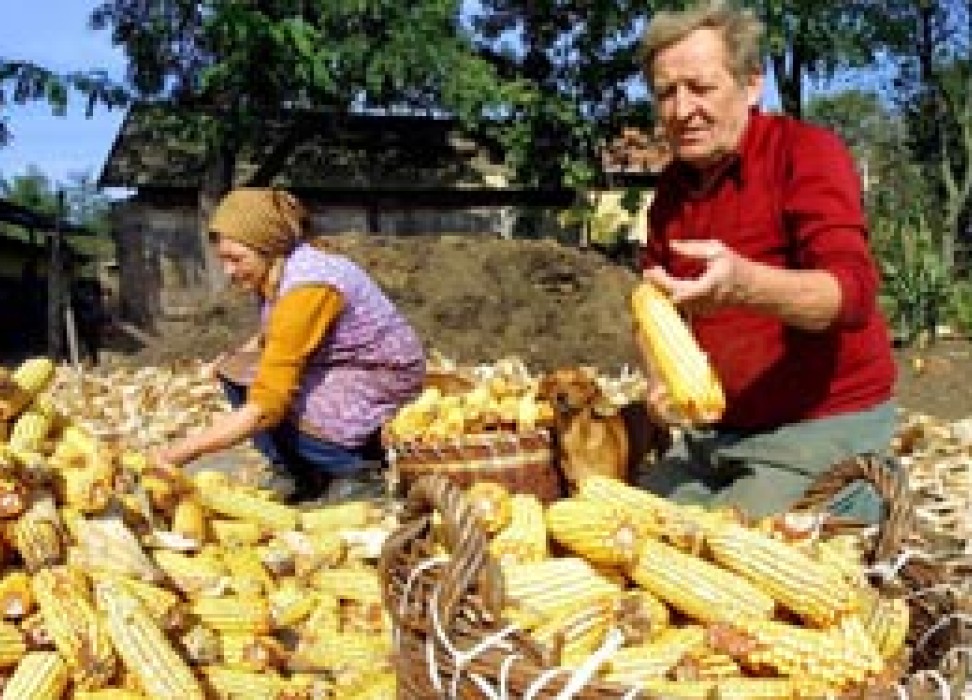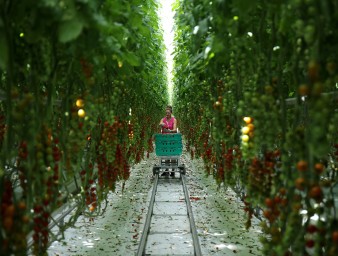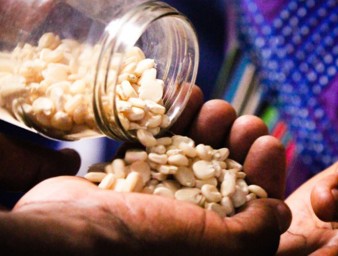Local and small-scale farming: a solution to hunger and malnutrition
15 April 2014

Over the past fifty years, there has been significant progress in boosting agricultural production, however this has hardly reduced the number of hungry people, and malnutrition continues to remain high, states a recent report by the Special Rapporteur on the right to food, Olivier De Schutter.
The report underlines that malnutrition is a global problem, with over 165 million children stunted — so malnourished that they do not reach their full physical and cognitive potential — and 2 billion people lacking vitamins and minerals essential for good health.
Inadequate diets have also contributed to steep increases in obesity and non-communicable diseases, such as type 2 diabetes, heart disease and gastrointestinal cancers, occurring now in all regions of the world, states the report.
However, De Schutter believes the eradication of hunger and malnutrition is an achievable goal if communities at the local level are empowered
“The solution to hunger and malnutrition is no longer increased production of food combined with trade and aid,” he said, “The international community must support the ability of each region to feed itself, and to reinvest in local production.”
He added that wealthy countries must move away from purely export-driven agricultural policies and leave space for small-scale farmers in developing countries to supply local markets. Respect for smallholder farmers’ access to productive resources is key in this regard, De Schutter said.
The report stressed that the increased reliance on food imports in the developing world is a major cause of the “nutrition transition”, characterized by a shift to more processed foods richer in salt, sugar and saturated fats — foods that have a long shelf life, but are often less nutritious.
In Malaysia, for instance, the “nutrition transition” has led to an increase in obesity from 4.4 per cent in 1996 to 15.2 per cent in 2011 among adults. Diabetes rates have also seen a steady increase over the same period, with current figures suggesting that around 15 per cent of Malaysians are now diabetic, De Schutter said after his visit to the country. During the course of his mandate, he had witnessed similar developments in China, Mexico and South Africa.
A dependence on food imports also poses economic risks, De Schutter explained. Because of the effects of climate change, increasing input costs, population growth, and higher and increasingly volatile prices of food commodities on international markets, there is a need to increase the levels of self-sufficiency.
Yet, De Schutter warned that local initiatives can only succeed if they are supported and complemented at the national level.
“The key lies in democratic decision-making,” he said. “National right to food strategies should be co-designed by relevant stakeholders, in particular the groups most affected by hunger and malnutrition, and they should be supported by independent monitoring.”
The Special Rapporteur’s recommendations, which were presented at the 25th session of the UN Human Rights Council in March, drew from work carried out by the mandate over the past six years, including three regional consultations organized jointly with the UN Human Rights Office and the UN Food and Agriculture Organization.
2014 is the International Year of Family Farming, aiming to focus world attention on the crucial role of smallholder family farms (making up over 98% of farming holdings globally) in eradicating hunger and poverty, providing food security and nutrition and achieving sustainable development.
This year also marks 10 years since the adoption of the FAO Right to Food Guidelines by member States of the FAO Council. The Guidelines provides practical guidance on the implementation of the human right to adequate food, set out in the International Covenant on Economic, Social and Cultural Rights and other international human rights treaties. At its 41st session, to be held in Rome in October, the UN Committee on Word Food Security will take stock of progress made and the challenges ahead.
15 April 2014




